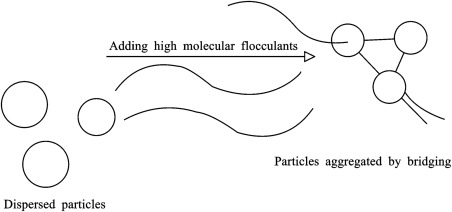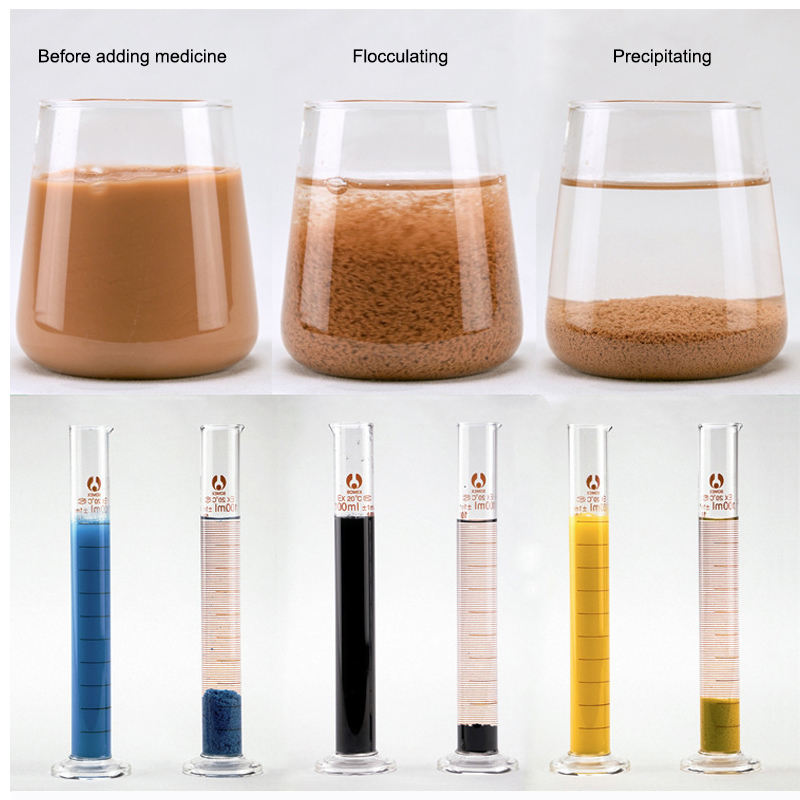
Flocculants are essential chemical agents that play a crucial role in water treatment. Whether in municipal water treatment facilities, industrial processes, or environmental management, these compounds help clean and purify water by removing suspended solids and contaminants. If you're asking, What are flocculants used for?, you’ve come to the right place. This article explores the science behind flocculants, their diverse applications, and their importance in sustainable water treatment practices.
Flocculants are chemicals used to facilitate the process of flocculation, where fine particles suspended in water are agglomerated into larger clumps known as “flocs.” These particles, often contaminants like clay, silt, or organic matter, are difficult to remove using simple filtration. Flocculants neutralize the charges on the particles, allowing them to stick together and form flocs, which can then be removed through sedimentation or flotation.

Flocculants can be categorized into three main types based on their chemical composition:
Organic Flocculants: The most commonly used, such as polyacrylamide (PAM), these flocculants are highly effective in municipal and industrial water treatment.
Inorganic Flocculants: These include aluminum sulfate (alum) and Polyaluminium chloride, often used for large-scale municipal water treatment.
Natural Flocculants: Derived from natural sources like starch and cellulose, these flocculants are eco-friendly and gaining popularity due to their biodegradability.

Flocculants are used in various industries where water needs to be treated by removing suspended solids. Here are some of the key applications:
Municipal water treatment plants use flocculants to remove suspended particles, bacteria, and other contaminants from drinking water. By adding flocculants, water treatment plants can coagulate particles and separate them from the clean water, ensuring the water delivered to homes is free from harmful impurities.
Flocculant Applications in Municipal Water Treatment:
Reduces turbidity: Clarifies water by removing suspended solids.
Removes harmful microorganisms: Ensures safe drinking water.
Improves water quality: Enhances the clarity and purity of the treated water.
Learn more about municipal water treatment with flocculants.
Industries like textiles, mining, and food processing generate significant volumes of wastewater that must be treated before discharge or reuse. Flocculants are used to remove oils, heavy metals, and chemicals from industrial wastewater, making it safe for reuse or safe discharge into the environment.
Flocculant Applications in Industrial Wastewater:
Removes industrial contaminants: Efficiently removes oils, fats, heavy metals, and chemicals.
Water recycling: Helps in the reuse of water within industrial processes.
Reduced environmental impact: Minimizes harmful discharge into water bodies.
Explore how flocculants improve industrial wastewater treatment.
Flocculants are also used in agriculture, especially for treating irrigation water. In regions where water quality is poor due to suspended solids or organic materials, flocculants help improve water quality, ensuring that crops receive clean water for better growth.
Flocculant Applications in Agriculture:
Improves water quality for crops: Reduces the risk of disease and promotes healthy growth.
Reduces soil erosion: By treating irrigation water, flocculants prevent particles from being washed away.
Efficient water distribution: Enhances the effectiveness of irrigation systems.
Flocculants play a key role in environmental management, particularly in the treatment of stormwater runoff, sewage sludge, and pollution control in water bodies. These agents aggregate harmful particles like oils, grease, and heavy metals, which can then be removed from water bodies to reduce environmental pollution.
Flocculant Applications in Pollution Control:
Stormwater treatment: Used in municipal stormwater systems to reduce contamination.
Oil spill cleanup: Flocculants help in the treatment of oil-contaminated water.
Heavy metal removal: Used to remove toxic metals from water bodies.
Learn more about the environmental benefits of flocculants.
Flocculants can be highly effective for water treatment, but it’s also important to consider their environmental impact. While many organic flocculants like polyacrylamide (PAM) are biodegradable and less harmful to the environment, some inorganic flocculants may have longer-term environmental consequences if not managed properly.
For example, while organic flocculants are preferred for their minimal environmental impact, the disposal of sludge generated during water treatment can be challenging. That’s why it’s essential to choose the right flocculant based on the specific treatment needs and environmental considerations.
Flocculants are indispensable in modern water treatment systems. From purifying drinking water to cleaning up industrial wastewater, these chemicals help remove contaminants efficiently and cost-effectively. As the world continues to face water quality challenges, the use of flocculants will become even more essential for both municipal and industrial applications.
If you are looking to optimize your water treatment processes with high-performance flocculants, contact us today for expert advice and customized solutions.